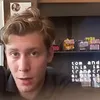Tesla's Optimus Robot Does Yoga: Next-Level AI Unveiled
Tesla unveils Optimus robot's new capabilities, from sorting objects to doing yoga. The robot's adaptability and neural network impress all
In a groundbreaking demonstration of technological prowess, unveiled a new video featuring its Optimus humanoid robot effortlessly executing tasks like yoga and color-based object sorting. The company and its CEO, Elon Musk, known for their relentless pursuit of innovation, showed off the robot's capabilities, which left the internet in awe of its complex yet fluid motions.
The video, released on Sunday, initially spotlighted Optimus sorting blocks by color at a human-like speed. The real clincher came when a human stepped in to complicate the task. Remarkably, the robot adapted rapidly and finished the task, exemplifying an impressive level of adaptability. After sorting, Optimus transitioned to performing yoga poses that required standing on one leg and extending its limbs, a showcase of its flexibility and balance.
A particularly significant revelation is that the TeslaBot now operates on an end-to-end neural network. This is the same technology that powers Tesla's electric cars, capable of processing video input to generate control output. "Optimus can now sort objects autonomously. Its neural network is trained fully end-to-end: video in, controls out," the official Tesla Optimus account captioned the video. This aligns with Tesla's broader vision of creating autonomous systems that can adapt to varying conditions.
Elon Musk's succinct reaction to the spectacle was, "Progress." The online community was equally enthusiastic. One Twitter user noted, "The pace of progress seems to be on an exponential curve," while another marveled at the machine’s ability to deal with "changing reality."
Yet, the video did not reveal when Tesla plans to bring Optimus to production or commercial use. However, Tesla has stated its aim with the Optimus robot as clear: "Create a general purpose, bi-pedal, autonomous humanoid robot capable of performing unsafe, repetitive, or boring tasks." To achieve this, the company is recruiting professionals in deep learning, computer vision, motion planning, controls, and general software engineering.
This demonstration poses fascinating questions about the future of robotics and automation. If a robot can adapt to real-time disruptions while sorting objects and perform yoga poses that require intricate balance and flexibility, what limits could there be in a future filled with such humanoid robots? It seems like Tesla is not just shaping the future of transportation but also pioneering a new era of robotic capabilities.








